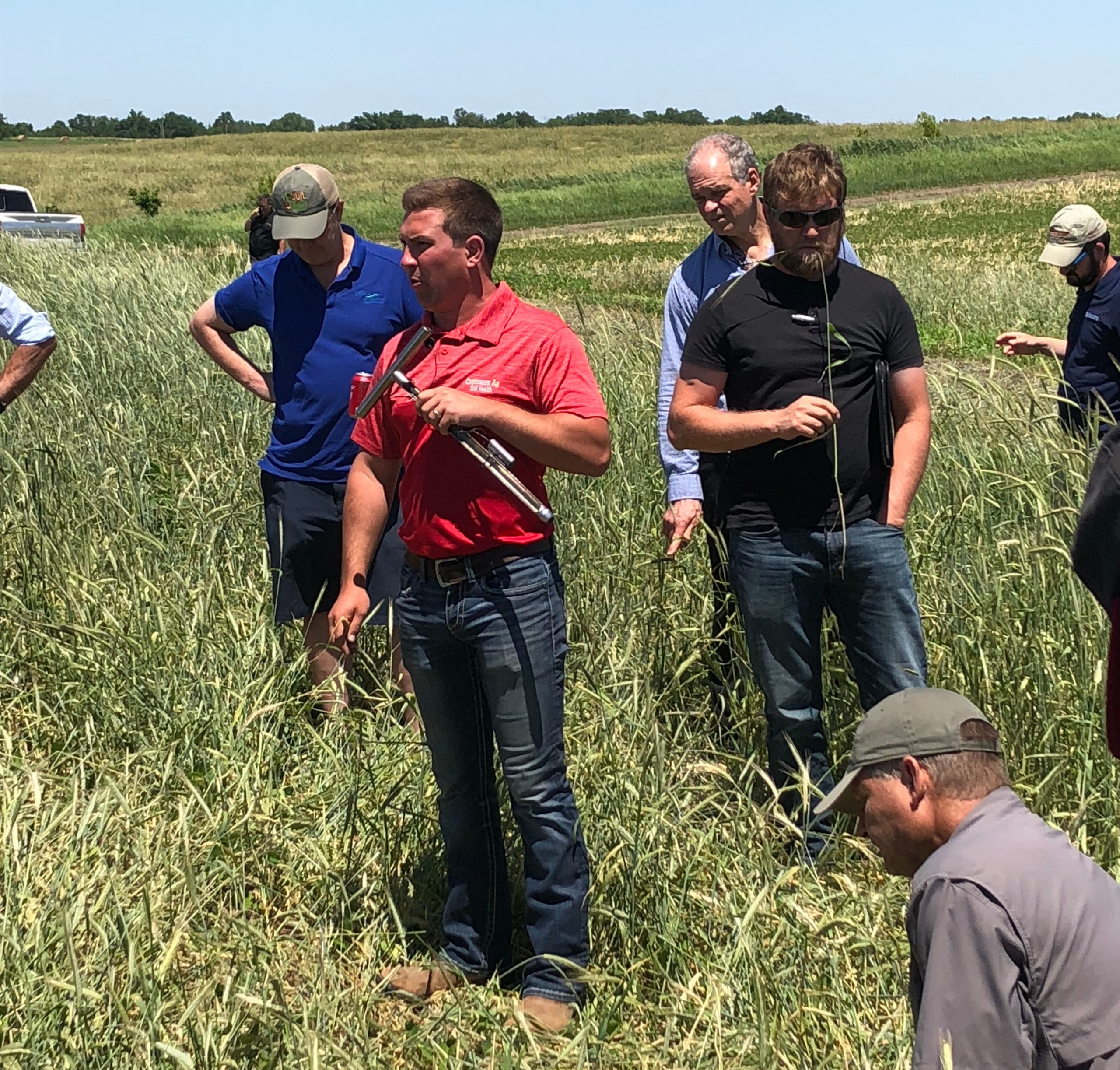Mitchell Hora was hoping to get 75 people to attend a soil health field day at his family’s farm in Ainsworth, Iowa. His hopes were exceeded as twice as many, 150 people, mostly farmers, showed up on a hot Iowa day in June. Another 1500 watched the event livestreamed on Continuum Ag’s Facebook page.
Hora, who runs Continuum Ag, a soil health consultancy business, said he was “blown away” by the response to the field day.
“Farmers are ready to be back in the fields, back with other farmers, and back to events to learn about improving the sustainability of their operations,” he said.
Hora and his team organized a full day of events including field tours, a drone demonstration, and panel discussion featuring agriculture and soil health experts.
The field tours focused on how cover crops have benefitted soil health on Hora’s farm. These benefits include increased soil organic matter, better water infiltration and retention, and reduced inputs.
Hora showed a field of rye cover crops that had been mowed by a roller crimper, a tractor implement that “terminates” cover crops. A roller crimper is often used by organic farmers as an alternative to killing cover crops with an herbicide such as glyphosate, which is used by conventional farmers. There was also a demonstration of a drone that broadcast cover crop seeds between rows of corn.
Hora said he was open to growing more diverse crops than corn and soybeans.
“We are growing wheat and have test plots of mustard and barley for local craft breweries. But we have to make sure the market is there.”
Mitchell’s father Brian led a tour of the farm’s relay cropping fields, which involves planting a second crop into the first crop before harvest. Relay cropping helps reduce the need for herbicides.
The field day concluded with a panel discussion featuring Adam Kiel, director of conservation and external programs at the Iowa Soybean Association, Ryan Sirolli, Cargill’s global row crop sustainability director, Krista Maruca senior program officer, sustainability and corporate engagement at OCP North America, Rick Haney, USDA soil scientist, and Zach Johnson, farmer and the MN Millennial Farmer “vlogger” on YouTube.
Kiel and Sirolli discussed the new Soil & Water Outcomes Fund between Cargill and the Iowa Soybean Association, which will pay U.S. farmers for capturing carbon in their soils and reducing fertilizer runoff.
“The Fund is really a pathway for farmers to change the system for water quality and carbon,” Kiel said.
This year 9400 acres in Iowa are enrolled in the program with the goal to increase that to 100,000 acres.
Sirolli said the challenge for food companies is to communicate the benefits of soil health to consumers.
“The message to the consumer is hard. How do you make soil health tangible? We are looking at helping to promote soil health and translate that into the consumer facing side.”
Haney emphasized the importance of better soil testing to quantify soil health. “The future is better soil testing. There is a new test available that is a step in the right direction.”
The speakers discussed the need for farmers to be rewarded for practices to protect the environment and water sources and sequester carbon to mitigate climate change.
“I would like to see farmers get paid for ecosystem services,” Haney said.
The connection between soil health and nutrition or “nutrient density” was also discussed.
“It is that connection: healthy foods come from healthy soils,” Hora said. “How do we help to quantify that? Balancing that system and working with nature.”
“There is that connection between healthy soil, healthy food, and healthy people,” Maruca said. “We’re still in early days to understand that link.”
The speakers expressed optimism about agriculture.
“I am pumped about the future of agriculture,” Sirolli said.
“Transformation needs to happen in agriculture, more climate positive, nature positive, and farmer positive, Maruca said.
“Everyone is talking about soil health, and it’s here to stay,” Hora said. “We have a long way to go but we will get there.”





